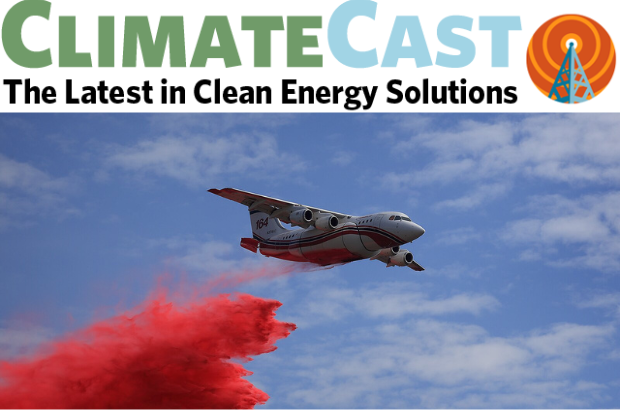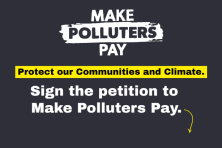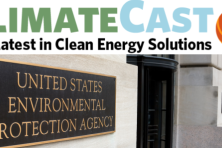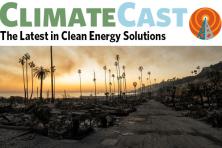Buried with the debt ceiling raise: climate rollbacks
With the Congressional drama over the debt ceiling coming to a close this week (for the time being, as it is a recurring episode in the American “political theater of the absurd”), climate journalists and advocacy groups have been daylighting energy-permitting and climate provisions “buried” within the about-to-be-signed policy that may prove to have a lasting impact on the U.S.’s clean energy transition. While the Mountain Valley pipeline received much of the spotlight (a 304-mile conduit that will link Senator Manchin’s West Virginia’s gas fields to the rest of the country), majorities of both chambers of Congress also voted to make a number of changes to federal permitting law, especially the National Environmental Policy Act (NEPA). Permitting reform is essential for the clean energy transition and both Democrats and Republicans agree that it takes far too long in the US to build new energy infrastructure—an average of five years wait for project approval and permitting - yet “reform” means very different things on either side of the political spectrum. The fossil fuel industry and their allies in office — most often in the Republican Party but also some Democrats from fossil fuel-rich states — want to weaken NEPA and other environmental protections to build more fossil fuel infrastructure. Meanwhile, proponents for clean energy and climate action, including many Democrats, want to make it easier to build long-distance power lines and more energy storage capacity while prioritizing tribal rights, environmental protection, and racial justice. Congress will revisit permitting reform in the coming months, but until then, here’s a deeper dive on what this all means.
Oregon Senate walkouts continue, stalling the Legislature
A month into the Oregon GOP-led legislative walkout, leaving over 100 bills in limbo ranging from a drought relief package to climate legislation, potentially leaving hundreds of millions in federal funding on the table. The GOP walkout in Oregon has also stalled the passage of the entire state budget. In an effort to get the rogue senators back into the chamber, the remaining body voted to charge missing members $325 a day for denying quorum. This is the 5th time since 2019 that the Oregon GOP has used this obstruction tactic, even with the latest measures barring their re-election put in place. The runaway Senators have changed their justifications for denying quorum and obstructing the entire legislative process. It started with a demand to adhere to an obscure law that requires all legislative summaries to be written at an 8th-grade reading level. When that proved a poor defense, blocking transgender healthcare, abortion rights, and gun control legislation came to the forefront. For now, there is no end in sight to the longest walkout in Oregon history, with Gov. Tina Kotek declaring an “impasse.” If Republicans do not return to work before June 25th (the constitutional end to the 2023 legislative session, a.k.a.: “sine die”), over 100 pending bills will fail and the state will be without an operating budget.
Insurers batten down the hatches against climate impacts
Insurance giant State Farm announced that they have stopped issuing new property insurance policies in the state of California, citing skyrocketing construction costs and increasing wildfire risk. The company will continue to honor its existing homeowners’ and business policies in the Golden State (at least for the time being), and State Farm’s auto insurance policies are unaffected by this change. Meanwhile, thousands of Florida homeowners with rooftop solar panels are having trouble securing insurance coverage that includes their sizable clean energy investments. Homeowners in the Sunshine State have reported that their insurance policies were unexpectedly terminated when they notified their carriers about their newly-installed rooftop solar panels. Industry experts suggest the canceled policies are the result of a knowledge gap between insurance carriers about the benefits and potential drawbacks of installed solar panels, but that’s little solace for solar early adopters living in Hurricane Alley.
One thing you can do
There’s fresh research out from Yale Center for Climate Communications on who’s most likely to have a conversation. Why take on such tough topic with friends and family? It encourages more action. Save this link (great on a phone) to our climate conversation card for easy, anywhere access for ways to get the discussion started.
What we’re listening to 🎧
ClimateCast captures a lot of news so you can get a curated digest of our quick take on recent news and commentary on climate issues. In our new feature What We’re Listening To, we’re highlighting a podcast episode or longer-form radio interview that we found compelling.
This week on What We’re Listening To, practice your Spanish with Lo Que Hace Cuenta, a National Geographic Podcast!
Don’t miss the Ciudades episode, where the host, Magali Tajes, explores Latin American efforts to curb climate change in cities. She interviews Andrea San Gil León, founder of the Center for Urban Sustainability in Costa Rica; Dr. Gian Carlo Delgado Ramos, Climate Scientist and Researcher at the Universidad Nacional Autónoma de México; Dr. Gustavo Madrid Vazquez, specializing in urbanism and architecture projects through the lens of social and climate sustainability; and Delfina Godfrid who works with youth on energy for the United Nations, Sustainability Development Goal 7, ensuring access to clean and affordable energy. Magali describes the episode, “Juntos a ellas y ellos, le ponemos una pausa a la velocidad urbana y escuchamos cual es el ritmo que necesita hoy nuestro planeta.”
Ciudades episode of Lo Que Hace Cuenta, a National Geographic Podcast in Spanish.
Mark your calendars! The Green Transportation Summit and Expo is happening this August 22 – 24th, 2023. Our 20% discount code gets you access to exclusive resources for flipping your fleet, networking opportunities with manufacturers and industry professionals, and test drive a wide variety of clean medium- and heavy-duty vehicles.
🤑 Use discount code "CLIMATESOLU-30" at checkout! 💰






